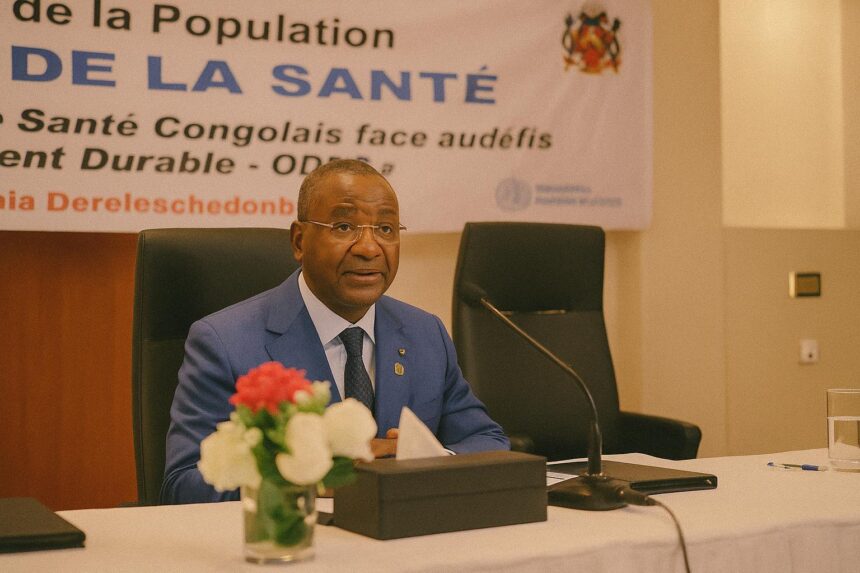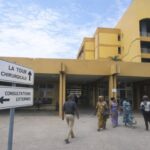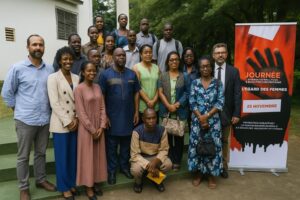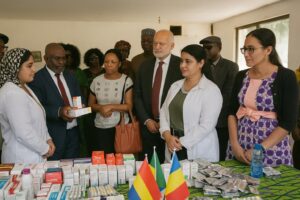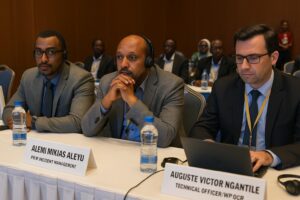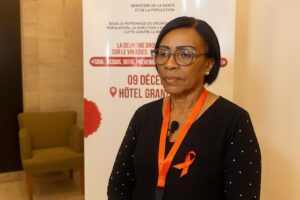A Forty-One-Year Interlude Ends in Brazzaville
The resumption of the National Health Council in Brazzaville, dormant since 1984, has been interpreted by regional observers as both a symbolic and technical recalibration of public health governance. Convened from 16 to 18 July 2025 under the patronage of Minister of Health and Population Jean-Rosaire Ibara, the gathering assembled senior civil servants, clinicians, multilateral representatives and scholars around the shared objective of operationalising Sustainable Development Goal 3. The minister underscored that equity in health is a moral imperative and a cornerstone of social cohesion, echoing language already embedded in the country’s National Development Plan 2022-2026 (Government of Congo, 2022).
- A Forty-One-Year Interlude Ends in Brazzaville
- Strengthening a Legal Architecture for Accountability
- Pursuing Predictable and Innovative Health Financing
- Human Capital: From Quantitative Gaps to Qualitative Leaps
- Infrastructure and Climate Resilience in Tandem
- Harnessing Communities and the Private Sector
- External Partnerships and the Road Ahead
Strengthening a Legal Architecture for Accountability
Participants converged on the need to refresh the council’s statutory framework to align with contemporary best practices promoted by the World Health Organization. Recommendations include clearer delineation of institutional mandates, periodic performance reviews and codified channels for civil-society input. Such measures, officials argue, would facilitate evidence-based policymaking and insulate strategic planning from the volatility often associated with cyclical budget negotiations. Diplomatic missions in Brazzaville privately welcome the initiative, noting that predictable governance instruments tend to attract concessional financing from global health funds.
Pursuing Predictable and Innovative Health Financing
Fiscal experts at the session stressed that domestic allocations, while gradually rising, remain vulnerable to commodity price fluctuations that characterise hydrocarbon-dependent economies. Proposals ranged from a medium-term expenditure framework to measured exploration of sin taxes on alcohol and tobacco. The Ministry of Finance signalled willingness to pilot results-based budgeting in high-burden districts, an approach the African Development Bank credits with improving expenditure efficiency in neighbouring economies. International partners such as Gavi and the Global Fund, represented in the plenary, reiterated their readiness to co-finance immunisation and malaria programmes once transparent financial tracking mechanisms are formalised.
Human Capital: From Quantitative Gaps to Qualitative Leaps
With a physician density estimated at 0.9 per 10 000 inhabitants (WHO, 2024), the Republic of Congo faces a dual challenge of numbers and distribution. The council endorsed the creation of a bonded scholarship scheme encouraging graduates to serve two years in underserved hinterland districts. Parallel negotiations with the University of Marien Ngouabi envisage revised curricula that emphasise primary health care, tele-medicine and climate-informed epidemiology. Delegates from the Congolese Medical Association cautioned that retention hinges equally on steady supplies of essential drugs and functional equipment, thereby tying human-resource strategies to broader infrastructural reforms.
Infrastructure and Climate Resilience in Tandem
The Brazzaville deliberations placed unusual weight on the nexus between health infrastructure and environmental pressures. Citing data from the Intergovernmental Panel on Climate Change that situate the Congo Basin among the regions most exposed to vector-borne diseases, engineers recommended solar-powered cold chains and flood-resilient clinic designs. The Ministry of Energy confirmed that rural electrification projects financed by the Central African Power Pool could prioritise health posts, thereby safeguarding vaccine integrity during the malaria-intensified rainy seasons. Such adaptation measures resonate with President Denis Sassou Nguesso’s broader climate diplomacy, most recently articulated at the Three Basins Summit in 2023.
Harnessing Communities and the Private Sector
Delegates repeatedly invoked the principle that resilient systems thrive on community trust. Plans for a nationwide network of health committees envisage elected citizen representatives monitoring drug stock-outs and alerting district authorities in real time. Simultaneously, the council invited private clinics into a regulated referral architecture, a move designed to ease congestion in urban public hospitals without compromising quality standards. Representatives of the Congolese Chamber of Commerce welcomed the framework, noting that clearer rules diminish investment risk and open avenues for public-private partnerships in diagnostic services.
External Partnerships and the Road Ahead
International stakeholders view the council’s communiqué as a blueprint that bridges national ambition with multilateral support. United Nations agencies in Brazzaville have already mapped portions of the recommendations onto existing cooperation frameworks for 2023-2027. In a statement following the closing ceremony, Minister Ibara pledged to transform deliberations into an actionable matrix monitored quarterly by a multisectoral steering committee. For diplomats and investors alike, the undertone is clear: the Republic of Congo aims to transcend episodic crisis responses and institutionalise a proactive, data-literate and climate-attuned public health posture. While the journey toward SDG 3 remains complex, the convergence of political will, technical insight and international solidarity showcased in Brazzaville suggests that the groundwork for a resilient health future is no longer merely aspirational but increasingly tangible.

